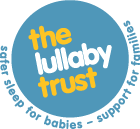
What is measles
Measles is a viral disease which used to be very common in childhood. It is highly contagious, particularly among children. There have been recent outbreaks in Wales, spreading into Gloucestershire, and in Yorkshire.
What are the symptoms
The first symptoms of measles are similar to a cold – runny nose, sneezing, red and watery eyes. It may be accompanied by a dry cough. A child may also be sensitive to light, have a temperature, be generally tired, irritable and achey, and have little appetite.
Measles has a red/brown spotty rash which often starts behind the ears and spreads over the head, body and legs. You can find a picture of it on the NHS slideshow. This rash in conjunction with a very high temperature (over 100F°) and small greyish spots inside the mouth are key indicators for measles.
Why is it serious
Measles can cause other complications, such as vomiting and diahorrhea, conjunctivitis, laryngitis, ear infections and febrile seizures.
Less common, but more serious complications include pneumonia, bronchitis, croup, encephalitis (inflammation of the brain), meningitis and hepatitis. Rare but very serious complications are infection of the optic nerve, which causes blindness, heart and lung problems, and a rare brain complication, which is fatal.
How can you treat it
There is nothing that can be done to treat measles itself. Any secondary infections may be treated with antibiotics. The best thing to do is to treat the symptoms individually.
- Keep children hydrated and at a comfortable temperature. Use paediatric paracetemol or ibuprofen to relieve pain and fever.
- If a child has a cough then humidify the room using a bowl of water. A drink of honey and lemon may help but this shouldn’t be given to babies under 12 months, as honey is not suitable for them.
- Keep light levels low but closing curtains and using night lights instead of the main lighting in a room.
- Clean sore and gunky eyes with cotton wool and warm water. Remember to throw away each ball as you use it so you don’t spread infection.
How can you prevent it
The only sure way to prevent measles is by vaccinating against it. This is usually done with the MMR jab which requires 2 injections at least 3 months apart, usually the first given between 12 and 13 months and another between 3 and 5 years old. If you need urgent protection because of an outbreak in your area or because you are travelling abroad an additional dose can be given to children under 12 months. Premature babies may have a special vaccination schedule.
As a nanny it’s important to make sure you are immunised against measles. If you are in any doubt whether you are immune or whether you need to be vaccinated, ask your doctor for a blood test, explaining that you work with young children and potentially pregnant women too.

 This is a guest posting from The Lullaby Trust. The Lullaby Trust, formerly FSID, promotes expert advice on safer baby sleep and provides specialist support for bereaved families.
This is a guest posting from The Lullaby Trust. The Lullaby Trust, formerly FSID, promotes expert advice on safer baby sleep and provides specialist support for bereaved families.






